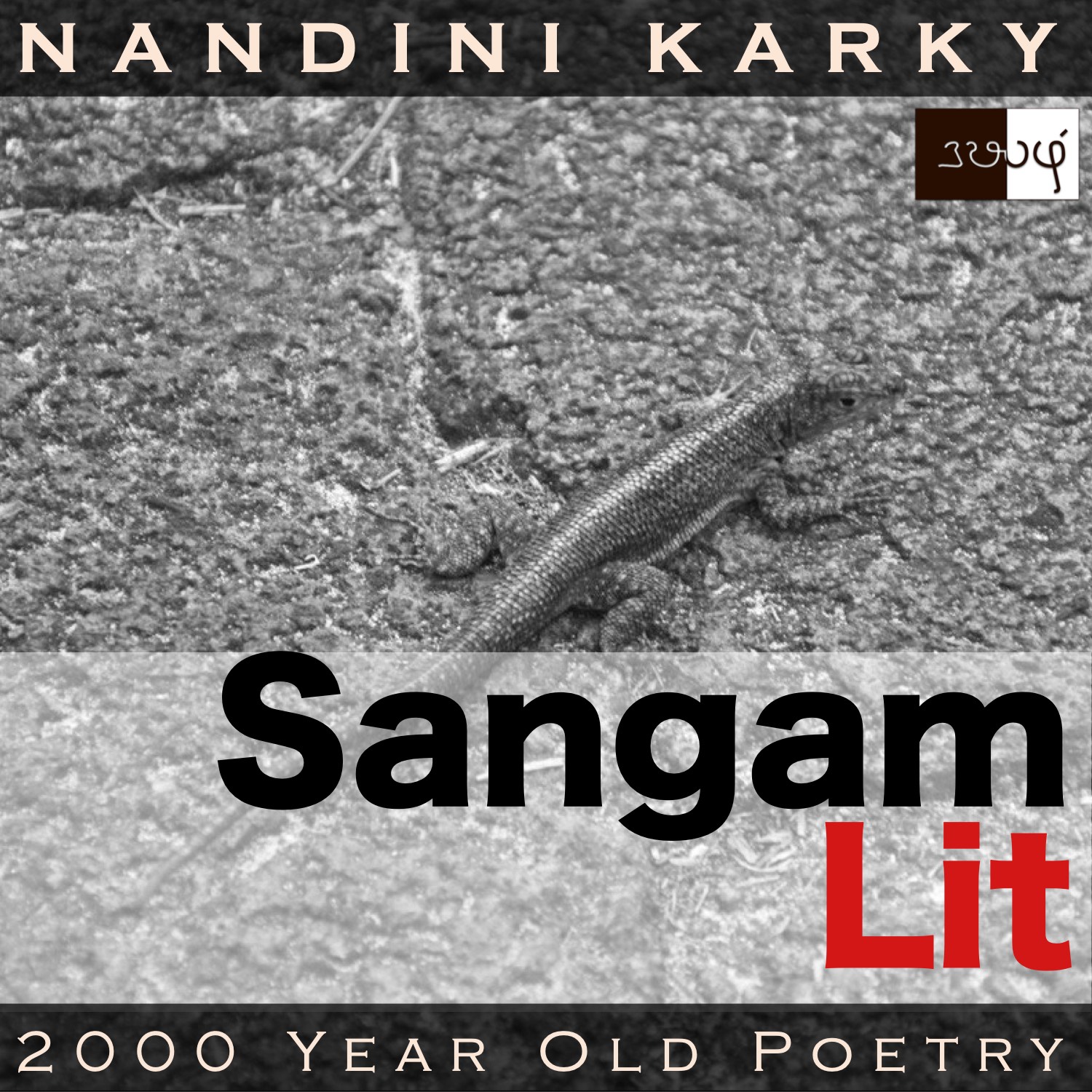Podcast: Play in new window | Download
Subscribe: Apple Podcasts | Spotify | Amazon Music | Android | iHeartRadio | TuneIn | RSS | More

In this episode, we perceive the yearning in the heart of a man returning home, as portrayed in Sangam literary work, Natrinai 169, penned by an anonymous poet. The verse is set in the forest country of ‘Mullai’ and speaks in the voice of the man to his heart, on completing a far-away mission, as his thoughts turn homeward.
”முன்னியது முடித்தனம் ஆயின், நன்னுதல்!
வருவம்” என்னும் பருவரல் தீர,
படும்கொல், வாழி, நெடுஞ் சுவர்ப் பல்லி-
பரற் தலை போகிய சிரற் தலைக் கள்ளி
மீமிசைக் கலித்த வீ நறு முல்லை
ஆடு தலைத் துருவின் தோடு தலைப்பெயர்க்கும்
வன் கை இடையன் எல்லிப் பரீஇ,
வெண் போழ் தைஇய அலங்கல்அம் தொடலை
மறுகுடன் கமழும் மாலை,
சிறுகுடிப் பாக்கத்து எம் பெரு நகரானே.
With the words ‘முன்னியது முடித்தனம்’ meaning ‘finishing what one intends’, the poem makes an emphatic start. ‘நன்னுதல்’ means ‘a beautiful forehead’ and it’s the lady being referred to, thus. Such generic references, as against specific names for the protagonist, serve to invite any reader to participate in the verse and is a salient attribute of Sangam ‘Aham’ poetry. ‘பருவரல்’ talks about the ‘suffering’ that pining inflicts on a lady separated from her man. Elements of flora and fauna greet us in this verse, through ‘பல்லி’ meaning ‘lizard’, ‘சிரல்’ meaning ‘kingfisher’, ‘கள்ளி’ meaning ‘cactus’, and ‘முல்லை’ meaning ‘wild jasmine’. Not to forget, ‘sheep’ that makes its appearance in this curious phrase ‘ஆடு தலைத் துரு’, meaning ‘sheep with shaking heads’. ‘வெண் போழ்’ brings before our eyes those ‘cream-coloured tender coconut shoots’, referred to as ‘thennang kuruthu’, a delicacy found in the streets of Madurai, favoured and savoured for its health benefits and unique taste. Ending with the phrase, ‘சிறுகுடிப் பாக்கத்து எம் பெரு நகரானே’ meaning ‘my huge mansion in the little village’, the poem welcomes us within an ancient home. Let’s step in to know more.
The man and lady had been leading a happy married life, when the time comes for the man to leave the lady on a task, far-away. The day arrives when he finds that his mission is complete. Just then, he turns to his heart and says, “As I now return, fulfilling words of promise that said, ‘My lady with a fine forehead, I will return the moment I complete what I intend to do’, will the lizard on the long wall give an omen to end the suffering of my lady? In pebble-filled paths, grows the prickly pear cactus plants with blooms that look like the head of a kingfisher. Above these cactus buds, spread sweet-scented jasmine flowers. The goatherd, who moves the herd of head-shaking goats from one place to another, plucks these jasmine flowers with his strong hands, during the day. These flowers are then woven into exquisite garlands by tying them together on white tender coconut shoots. These garlands spread fragrance during the evening hours in that tiny hamlet, where stands my tall mansion. Long may it live, that lizard on the wall of my home!” With these words, the man expresses his delighted anticipation of reuniting with his beloved.
Now, for the minute details that decorate this poem! The man starts by recollecting the moment of parting when he said to the lady that he will be back the moment he completes his task. Even though he’s far away, he can sense how the sorrow of parting would have afflicted the lady. So he hopes for someone, something to convey the news of his return to her. Just then, he is reminded of the lizard on the wall of his home and he trusts that it will bring cheer to the lady with a good omen of his return. From there, the man’s focus suddenly changes to a pebble filled region, and here, he shows us cactus plants in full bloom, reminding us of the head of kingfishers. Then, he lifts our gazes to the vines of the wild jasmine spreading above. Just then, we see someone’s strong hands plucking these flowers from the vine. There’s something significant about strong hands picking flowers. Leaving that thought to soak a little, we turn to learn that those strong hands belong to a goatherd, who goes about his day, moving sheep from one spot to another, making sure they get their fill. Then, the man turns his eyes to the flowers that have been plucked and they journey into other hands that tie them with the strands of those tender coconut shoots. These sweet-smelling garlands are taken along the streets of that village, spreading aroma all the way. And, it’s in this village that the man’s mansion stands. The man’s hope is that the lizard on a wall within this mansion will make magic with its clicks, and somehow, let the lady know that he’s on his way to spread joy in her waiting heart, akin to those jasmine garlands spreading fragrance in the town’s streets.
Returning to that image of strong hands picking flowers, it makes us ponder on the reason for this particular reference. The poet could have simply said that the goatherd was picking jasmine flowers. Why mention those strong arms? Perhaps, a subtle reference to how the man has completed his mission with strength and rigour, and now, it was time for his heart to turn towards the gentle task of meeting with his lady, akin to those strong hands picking flowers!




Share your thoughts...